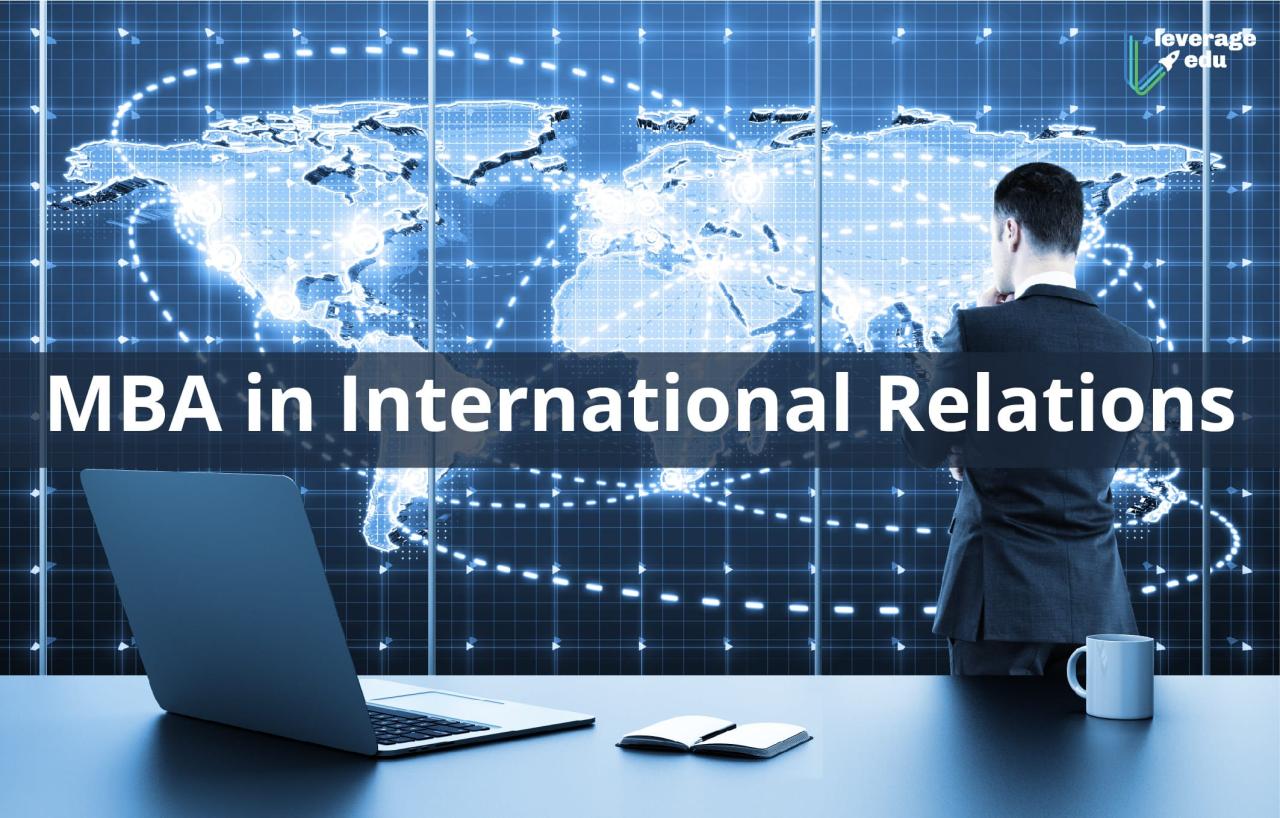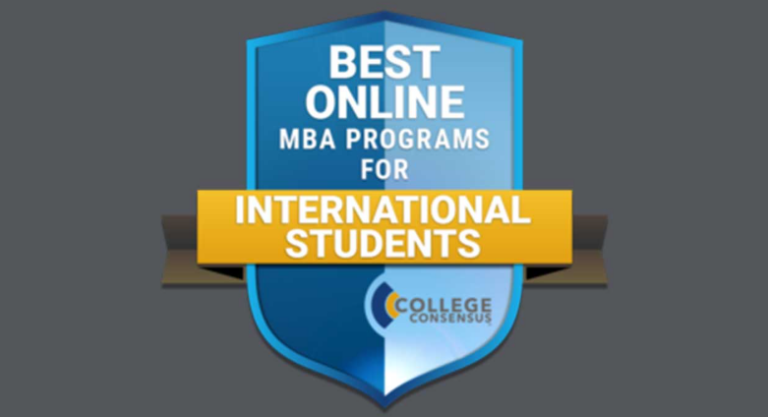MBA in International Trade Law opens doors to a fascinating world where legal expertise meets global commerce. This specialized MBA program equips graduates with the knowledge and skills to navigate the complex landscape of international trade, from understanding trade agreements to resolving disputes. It’s a field demanding both legal acumen and business savvy, offering diverse career paths for those seeking a challenging and rewarding professional journey.
The curriculum typically covers core international trade law principles, key agreements like the WTO’s rules, and effective dispute resolution mechanisms. Students delve into various specializations, such as WTO law, investment law, or customs law, gaining in-depth expertise in their chosen area. Real-world case studies and practical applications solidify their understanding, preparing them for the complexities of international business.
Program Overview

An MBA in International Trade Law offers a unique blend of business acumen and legal expertise, equipping graduates to navigate the complexities of global commerce. This specialized program caters to individuals aiming for leadership roles in international businesses, law firms, and governmental organizations dealing with cross-border trade.
Curriculum Details
The curriculum typically includes core MBA subjects like finance, accounting, and marketing, integrated with specialized courses in international trade law, international business transactions, customs law, WTO law, international dispute resolution, and intellectual property rights in a global context. Electives often allow students to focus on specific areas of interest, such as trade policy, foreign investment, or sanctions compliance. Case studies and simulations provide practical application of theoretical knowledge.
Career Paths for Graduates
Graduates of an MBA in International Trade Law find opportunities across various sectors. Many pursue careers as in-house counsel for multinational corporations, handling international contracts, compliance issues, and trade disputes. Others work in international law firms specializing in trade law, advising clients on cross-border transactions and representing them in international arbitration. Government agencies, international organizations (like the WTO or UNCTAD), and trade regulatory bodies also employ graduates in policy-making, regulatory roles, and dispute settlement.
Some graduates may choose entrepreneurial paths, establishing their own consulting firms specializing in international trade.
Comparison with Other MBA Concentrations, MBA in international trade law
While a general MBA provides a broad business foundation, an MBA in International Trade Law offers a more specialized skill set focused on the legal and regulatory aspects of global commerce. Unlike other MBA concentrations like finance or marketing, this program emphasizes legal frameworks, international agreements, and dispute resolution mechanisms. It complements other specializations, for example, a finance MBA might benefit from the trade law knowledge to better understand global financial regulations and risks, while a marketing MBA could use this to understand international marketing laws and regulations.
Successful Alumni Examples
While specific alumni details are often kept confidential due to privacy concerns, a hypothetical example could illustrate potential career paths. Imagine an alumnus who, after completing the MBA, secured a position as an in-house counsel for a major technology company. Their expertise in international trade law allowed them to negotiate favorable terms in international distribution agreements and effectively manage the company’s compliance with various trade regulations across multiple jurisdictions.
Another alumnus might have become a partner at a leading international law firm, specializing in WTO dispute settlement, representing countries or corporations in trade disputes before international tribunals.
Key Skills and Knowledge
The following table summarizes the key skills and knowledge gained from an MBA in International Trade Law program:
| Skill | Description | Application in International Trade Law | Benefit to Employers |
|---|---|---|---|
| International Trade Law Knowledge | Understanding of WTO rules, international trade agreements, and customs regulations. | Analyzing trade barriers, negotiating trade agreements, and ensuring compliance with international trade laws. | Reduced legal risks, improved compliance, and enhanced international business opportunities. |
| Contract Negotiation & Drafting | Ability to negotiate and draft legally sound international trade contracts. | Successfully structuring international transactions and mitigating potential disputes. | Efficient and effective deal-making, minimizing legal complexities. |
| International Dispute Resolution | Knowledge of arbitration, mediation, and litigation processes in international trade disputes. | Effectively resolving trade disputes and protecting the company’s interests. | Reduced legal costs, quicker dispute resolution, and preservation of business relationships. |
| Compliance & Risk Management | Ability to identify and manage legal and regulatory risks in international trade. | Ensuring compliance with trade sanctions, anti-dumping regulations, and other relevant laws. | Minimized legal liabilities, improved reputation, and sustained business growth. |
International Trade Law Fundamentals Covered
This MBA program provides a robust grounding in the core principles governing international commerce. Students will gain a comprehensive understanding of the legal framework that shapes global trade, encompassing both the theoretical underpinnings and the practical application of international trade law. The curriculum is designed to equip graduates with the skills necessary to navigate the complexities of international trade transactions and disputes.This section details the key areas of international trade law explored in the program.
We cover the foundational principles, explore significant international agreements and organizations, and examine dispute resolution mechanisms. Real-world examples illustrate the practical application of these concepts.
Core Principles of International Trade Law
The program delves into fundamental principles such as the most-favored-nation (MFN) treatment, national treatment, and the principle of non-discrimination. These core tenets, enshrined in the World Trade Organization (WTO) agreements, form the bedrock of the multilateral trading system. Students will analyze how these principles are interpreted and applied in practice, considering their impact on various trade policies and regulations.
We will also explore the exceptions to these principles, such as safeguards, anti-dumping, and countervailing duties, examining their justifications and limitations.
Key International Trade Agreements and Organizations
The curriculum covers major international trade agreements, including the WTO agreements (GATT, GATS, TRIPS), regional trade agreements like the North American Free Trade Agreement (now USMCA), and the European Union’s single market. Students will learn about the institutional structure and functioning of the WTO, its dispute settlement system, and the role of other key international organizations, such as the World Bank and the International Monetary Fund (IMF), in shaping the global trade landscape.
Understanding the interplay between these organizations and agreements is crucial for effective navigation of international trade.
Dispute Resolution Mechanisms in International Trade
The program emphasizes the importance of dispute resolution mechanisms in enforcing international trade rules. We examine the WTO’s dispute settlement system, including its panel process, the Appellate Body, and the implementation of rulings. Students will also learn about alternative dispute resolution methods, such as arbitration and mediation, commonly used in resolving trade-related conflicts between private parties. Analyzing the strengths and weaknesses of different mechanisms is critical for effective advocacy and negotiation.
Real-World Cases Illustrating Key Concepts
The program incorporates real-world case studies to illustrate the practical application of international trade law principles. For example, the infamous “Shrimp-Turtle” case, where the US imposed restrictions on shrimp imports to protect sea turtles, highlights the complexities of balancing trade interests with environmental concerns and the role of the WTO’s dispute settlement system in resolving such conflicts. Similarly, disputes involving anti-dumping measures or safeguard actions provide practical examples of how trade law is applied in specific contexts.
These case studies demonstrate the intricacies and nuances of international trade law in action.
Types of Trade Barriers and Their Impacts
Understanding various trade barriers is crucial for effective international trade management. These barriers can significantly impact market access, competitiveness, and overall economic efficiency.
- Tariff Barriers: Taxes imposed on imported goods, increasing their price and reducing their competitiveness. These can range from ad valorem (percentage of value) to specific (fixed amount per unit).
- Non-Tariff Barriers: These include a wide range of measures that restrict trade without directly imposing taxes. Examples include:
- Quotas: Limits on the quantity of a specific good that can be imported.
- Sanitary and Phytosanitary (SPS) Measures: Regulations aimed at protecting human, animal, or plant life from risks associated with imported goods. These can sometimes be used as non-tariff barriers if they are overly stringent or discriminatory.
- Technical Barriers to Trade (TBT): Regulations related to product standards, testing, and certification. Again, these can be used as barriers if they are unnecessarily burdensome or discriminate against foreign products.
- Embargoes: Complete prohibitions on trade with a particular country or region.
- Subsidies: Government financial assistance to domestic producers, giving them an unfair advantage over foreign competitors.
The impact of trade barriers can be substantial, leading to higher prices for consumers, reduced choice, and distortions in global markets. Effective negotiation and dispute resolution are key to minimizing the negative effects of these barriers.
Specializations within International Trade Law MBAs: MBA In International Trade Law
An MBA in International Trade Law offers a broad foundation, but specializing allows for deeper expertise and better career targeting. Several key areas offer distinct paths, each with unique career prospects and required skill sets. Understanding these specializations is crucial for prospective students to align their education with their professional goals.
WTO Law Specialization
This specialization focuses on the rules and dispute settlement mechanisms of the World Trade Organization. Graduates gain a deep understanding of WTO agreements, including GATT, GATS, and TRIPS, and develop skills in analyzing trade disputes and advocating for clients before WTO panels.Career prospects for WTO law specialists include working for international organizations like the WTO itself, governments (in trade ministries or diplomatic missions), or large multinational law firms specializing in international trade.
They might act as trade negotiators, legal advisors, or dispute settlement experts.A hypothetical curriculum might include:
- WTO Law and Dispute Settlement
- GATT/GATS/TRIPS Agreements
- International Trade Policy and Negotiation
- Trade Remedies (Anti-dumping, Countervailing Duties, Safeguards)
- Regional Trade Agreements and their Interaction with WTO Law
Learning objectives center around critical analysis of WTO law, practical application of dispute settlement procedures, and effective advocacy skills.Research topics could explore the effectiveness of WTO dispute settlement, the impact of specific WTO agreements on developing countries, or the future of the WTO in a changing global landscape. For example, a research paper might analyze the effectiveness of the WTO’s dispute settlement system in addressing trade disputes involving e-commerce.
Investment Law Specialization
This specialization focuses on the legal framework governing foreign direct investment, including international investment agreements (IIAs) and investor-state dispute settlement (ISDS). Graduates develop expertise in negotiating IIAs, advising investors on cross-border investments, and representing states or investors in ISDS proceedings.Career prospects include working for international organizations focused on investment, governments involved in investment promotion or protection, international law firms, or multinational corporations with significant foreign investments.
Roles might involve advising on investment treaty compliance, negotiating investment agreements, or representing clients in investor-state arbitration.A possible curriculum:
- International Investment Law
- Investor-State Dispute Settlement (ISDS)
- Foreign Investment and Development
- International Arbitration
- Comparative Investment Treaty Law
Learning objectives involve mastering the intricacies of IIAs, understanding ISDS mechanisms, and developing skills in international arbitration.Research could explore the effectiveness of ISDS, the impact of IIAs on development, or the challenges of regulating foreign investment in emerging markets. For example, a research project might assess the impact of ISDS on the regulatory autonomy of developing countries.
Customs Law Specialization
This area focuses on the legal and procedural aspects of customs administration, including tariff classification, customs valuation, rules of origin, and customs enforcement. Graduates will understand the complexities of international trade regulations as they relate to the physical movement of goods across borders.Career prospects include working for customs administrations, international trade consulting firms, or multinational corporations involved in global supply chain management.
Roles could involve customs compliance, trade facilitation, or dispute resolution related to customs matters.A sample curriculum:
- Customs Law and Procedures
- Tariff Classification and Valuation
- Rules of Origin
- Customs Enforcement and Anti-Smuggling
- International Supply Chain Management
Learning objectives include mastering customs procedures, understanding the intricacies of tariff classification, and developing expertise in customs compliance and enforcement.Research might explore the effectiveness of customs enforcement, the impact of customs procedures on trade facilitation, or the role of customs in combating illicit trade. For instance, a research project could analyze the impact of digitalization on customs procedures and trade facilitation.
Admissions and Application Process

Getting into a top MBA program in International Trade Law is competitive, but with careful planning and a strong application, your chances of success significantly improve. The process involves several key steps, from meeting the admission requirements to submitting a compelling application. Understanding each stage is crucial for maximizing your prospects.
Admission Requirements
Typically, MBA programs in International Trade Law seek candidates with a strong academic background, professional experience, and a demonstrated interest in the field. Common requirements include a bachelor’s degree from an accredited institution, a competitive GMAT or GRE score, relevant work experience (often 2-5 years), and proficiency in English (demonstrated through TOEFL or IELTS scores for non-native speakers). Some programs may also require specific prerequisite courses in law, economics, or international relations.
Finally, a strong academic record, including a high GPA, is a crucial factor. Specific requirements vary between institutions, so it’s essential to check the individual program’s website for detailed information.
Application Essay Importance and Strategies
The application essay is your opportunity to showcase your personality, aspirations, and unique qualifications. It allows the admissions committee to assess your critical thinking skills, writing ability, and overall suitability for the program. A compelling essay should clearly articulate your reasons for pursuing an MBA in International Trade Law, highlighting relevant experiences that have shaped your interest. It should also demonstrate your understanding of the field and your career goals.
Strong essays often incorporate specific examples to illustrate your points, showcasing achievements and challenges overcome. Before writing, thoroughly research the program and tailor your essay to reflect your understanding of its specific focus and values. Seek feedback from mentors, professors, or career advisors to refine your essay and ensure clarity and impact.
Role of Letters of Recommendation
Letters of recommendation provide an external perspective on your capabilities and potential. They should come from individuals who can speak to your academic achievements, professional skills, and personal qualities. Ideally, these should be from professors who taught you in relevant courses or supervisors who have worked directly with you. Strong letters highlight specific instances demonstrating your strengths and abilities, offering concrete examples to support their assessments.
It is crucial to select recommenders who know you well and can provide insightful and positive feedback. Give your recommenders ample time to write their letters and provide them with all the necessary information, including your resume, a personal statement, and details about the program you are applying to.
Application Documents Checklist
A complete application typically includes the following:
- Completed application form
- Official transcripts from all previously attended institutions
- GMAT or GRE scores
- TOEFL or IELTS scores (if applicable)
- Resume/CV
- Application essay(s)
- Letters of recommendation
- Passport copy
- Application fee payment
Remember to carefully review the specific requirements of each program, as some may require additional documents.
Application Timeline: A Step-by-Step Guide
- Research Programs: Identify programs that align with your career goals and academic interests. This typically involves reviewing program websites, curriculum details, faculty profiles, and alumni networks.
- Prepare Application Materials: Gather all necessary documents, including transcripts, test scores, and letters of recommendation. Begin drafting your application essay well in advance.
- Request Letters of Recommendation: Give your recommenders ample time (at least 4-6 weeks) to write their letters.
- Submit the Application: Ensure all materials are submitted by the program’s deadline. Double-check for completeness and accuracy before submission.
- Follow Up (If Necessary): Some programs may allow for follow-up inquiries after the application deadline. Check the program’s website for guidelines.
- Await Decision: The admissions process typically takes several weeks or months.
Closing Notes

Ultimately, an MBA in International Trade Law provides a powerful combination of legal and business skills, making graduates highly sought-after professionals. Whether you’re drawn to the intricacies of international trade negotiations, the challenges of dispute resolution, or the complexities of global regulatory frameworks, this program offers a rewarding pathway to a successful and impactful career in a rapidly evolving global economy.
The specialized knowledge and practical skills acquired position graduates for leadership roles in multinational corporations, international organizations, and law firms, shaping the future of international commerce.
Key Questions Answered
What is the average salary for an MBA in International Trade Law graduate?
Salaries vary greatly depending on experience, specialization, and location. However, graduates often command competitive salaries, particularly in major financial centers.
Are there online MBA programs in International Trade Law?
Yes, several universities offer online or hybrid MBA programs with a focus on international trade law, offering flexibility for working professionals.
How long does it typically take to complete an MBA in International Trade Law?
Most programs take around two years to complete, though some accelerated programs may be shorter.
What are the admission requirements beyond the GMAT/GRE?
Beyond standardized tests, strong academic records, relevant work experience (especially in international business or law), and compelling application essays are crucial.
What kind of networking opportunities are available to students?
Many programs offer networking events, industry guest speakers, and career fairs, connecting students with professionals in the field.





